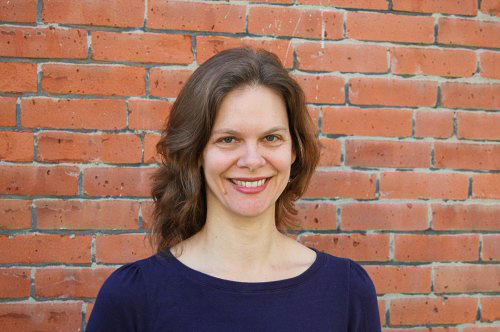
Beverley Gage
Exactly one century ago, the 1920 presidential election occurred as a global pandemic, violent race riots, an economic recession and immigration issues took the spotlight.
Earlier this month, history professor Beverly Gage appeared on a PBS NewsHour podcast to discuss how the past can inform the present as the United States undergoes a hauntingly similar year and another momentous election draws close.
PBS NewsHour’s podcast “America, Interrupted” featured Gage walking listeners through the 1920 campaigns and election — drawing connections to the present day. Gage, who is a frequent contributor to PBS NewsHour, said she was invited to speak on the podcast to add historical perspective to the current election cycle. She spoke about connections between today’s political crises –– such as impeachment, the Black Lives Matter movement and the coronavirus pandemic –– and the crises raging 100 years ago.
“1919 in particular had been a year of incredible upheaval within the United States, real social turmoil,” Gage said on the podcast. “You had 4 million people going out on strike, you’d had a series of race riots, and you’d also had a whole lot of revolutionary agitation … As a totality of experience, it seems to speak to a little bit of what we’re going through today.”
For Gage, it can be comforting to recall that people made it through similar periods of interlocking crises. Yet she mentioned there are some major differences between the two elections.
While Gage described today’s Democratic National Convention and the Republican National Convention as “big TV shows” in which everything has already been decided, she explained that the conventions 100 years ago were central in determining each party’s nominee, leading to an element of suspense.
Coming out of the 1920 convention, the Democratic Party chose to nominate James Cox. According to Gage, the Republican Party was especially divided as they tried to reject former President Woodrow Wilson’s progressive visions for the country.
“[The Republican Party] finally ended up with this man who admitted himself that he was not qualified for the presidency,” she said in the podcast. “And that was Warren Harding.”
Gage drew connections between certain elements of the Trump and Biden campaigns and the politics of the 1920 election.
President Trump, she said, draws on a “somewhat darker tradition” from 1920, with his anti-immigrant stance and focus on “law and order.”
Podcast host Lisa Desjardins alluded to similarities between Cox, for whom she said the election was about “American greatness,” and President Trump, who used the campaign slogan “Make America Great Again.”
“Biden does seem to be running a slightly Harding-esque campaign,” Gage said in the podcast. “He wants to be a source of stability, a return in a moment of craziness in politics –– in epidemiology –– to a certain kind of normalcy.”
For Nader Granmayeh ’24, who is working for the coordinated campaign between Joe Biden and the Democratic National Committee, Biden’s campaign represents a return to a sense of control and competency. He said that Americans had begun to take “normal presidents” and their ability to handle nonpolitical issues for granted.
But Granmayeh also thinks that Biden represents much more than Harding’s return to normalcy.
“If you are an extremely moderate person and truly just want to get back to normal, then, sure, you can see that in Joe Biden,” he said. “But if you’re somebody who wants to be excited by the future of this country, there are a lot of things to hold onto … Biden really has the chance to be one of the best presidents in recent memory.”
According to Gage, history suggests that the candidate who appears likely to resolve crises and bring back stability is more likely to win the presidency. =
She pointed to three presidential elections –– that of Harding in 1920, Franklin Roosevelt in 1932 and Richard Nixon in 1968 –– as examples of this phenomenon.
“Harding, Roosevelt and Nixon are radically different figures, but [their elections] all occurred in moments where there was an extensive sense of social crisis … and they are candidates who ran on being the responsible person of action who was going to calm things down,” Gage said.
Gage’s episode of “America, Interrupted” aired on Aug. 14.
Julia Brown | julia.k.brown@yale.edu







